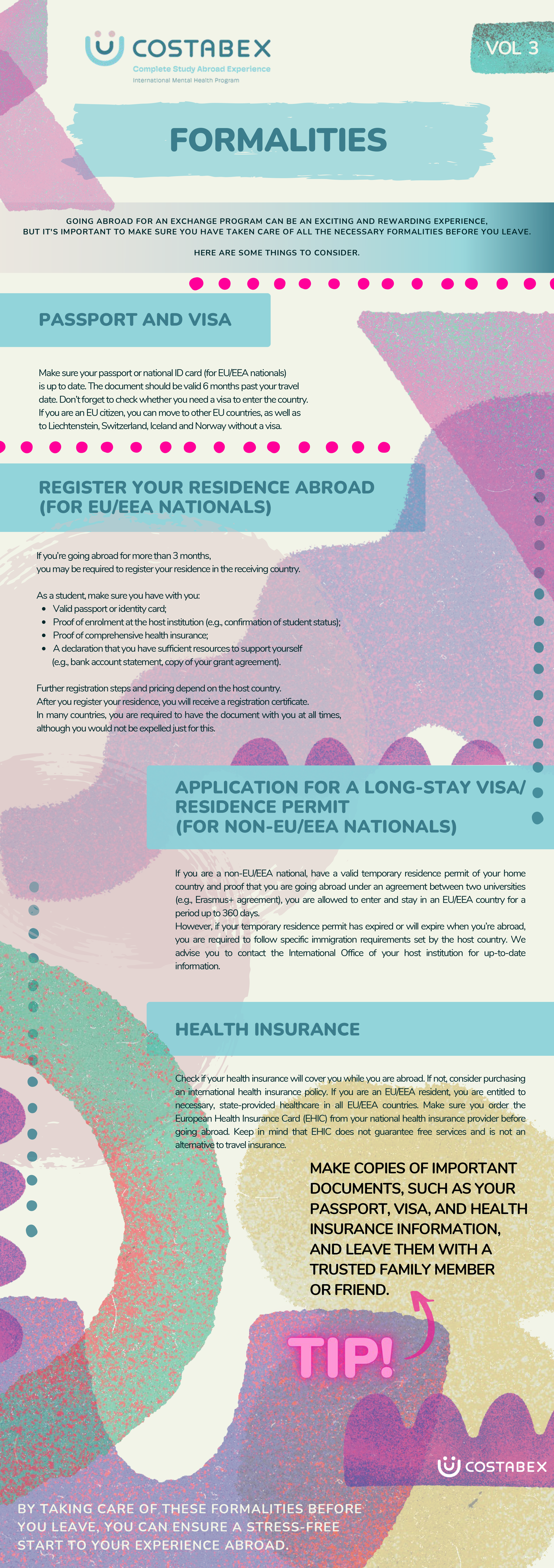Going abroad for an exchange program can be an exciting and rewarding experience, but it’s important to make sure you have taken care of all the necessary formalities before you leave.
Here are some things to consider:
Passport and visa
Make sure your passport or national ID card (for EU/EEA nationals) is up to date. The document should be valid 6 months past your travel date. Don’t forget to check whether you need a visa to enter the country. If you are an EU citizen, you can move to other EU countries, as well as to Liechtenstein, Switzerland, Iceland and Norway without a visa.
Register your residence abroad (for EU/EEA nationals)
If you are going abroad for more than 3 months, you may be required to register your residence in the receiving country.
As a student, make sure you have with you:
- Valid passport or identity card
- Proof of enrolment at the host institution (e.g., confirmation of student status)
- Proof of comprehensive health insurance
- A declaration that you have sufficient resources to support yourself (e.g., bank account statement, copy of your grant agreement)
Further registration steps and pricing depend on the host country.
After you register your residence, you will receive a registration certificate. In many countries, you are required to have the document with you at all times, although you would not be expelled just for this.
Application for a long-stay visa/residence permit (non-EU/EEA nationals)
If you are a non-EU/EEA national, have a valid temporary residence permit of your home country and proof that you are going abroad under an agreement between two universities (e.g., Erasmus+ agreement), you are allowed to enter and stay in an EU/EEA country for a period up to 360 days.
However, if your temporary residence permit has expired or will expire when you’re abroad, you are required to follow specific immigration requirements set by the host country. We advise you to contact the International Office of your host institution for up-to-date information.
Health Insurance
Check if your health insurance will cover you while you are abroad. If not, consider purchasing an international health insurance policy. If you are an EU/EEA resident, you are entitled to necessary, state-provided healthcare in all EU/EEA countries. Make sure you order the European Health Insurance Card (EHIC) from your national health insurance provider before going abroad. Keep in mind that EHIC does not guarantee free services and is not an alternative to travel insurance.
TIP! Make copies of important documents, such as your passport, visa, and health insurance information, and leave them with a trusted family member or friend.
By taking care of these formalities before you leave, you can ensure a stress-free start to your experience abroad.
Useful resources:
https://ec.europa.eu/social/main.jsp?catId=559

